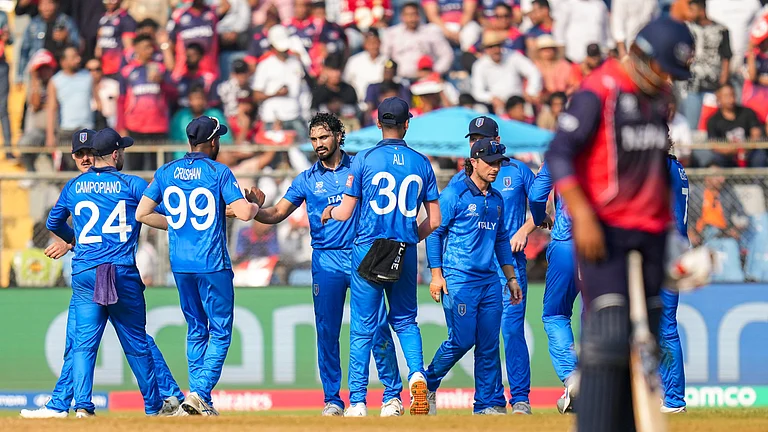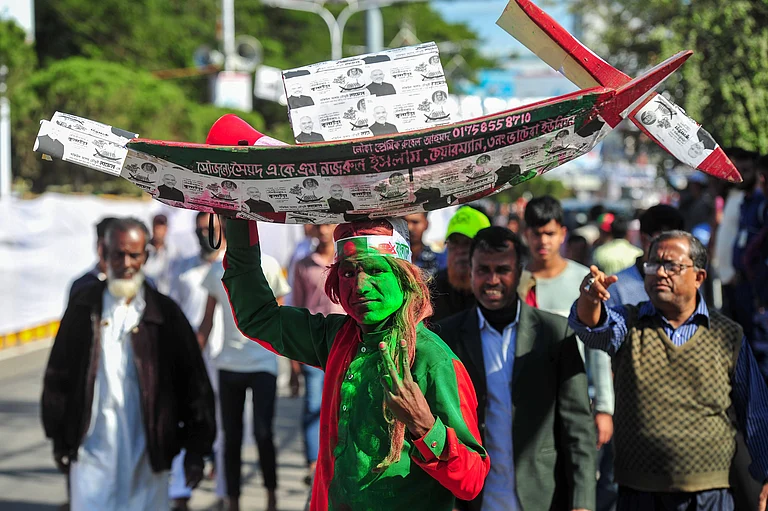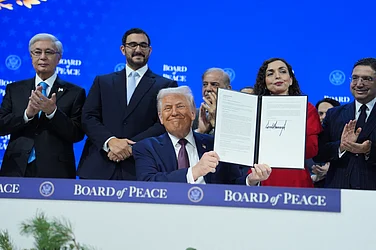With the international focus now on Ukraine, the Sri Lankan economic meltdown, and the ongoing constitutional saga triggered by Imran Khan in Pakistan, there is little time or energy left for Afghanistan. The country is slipping back to the dark days of the 1990s when the Taliban’s Mullah Omar presided over an austere and brutal regime -- public hangings on football stadiums were a common feature and music was banned with women confined to the house.
The Taliban are now conducting sweeping house to house operations in Kabul, in the name of tightening security in the capital city. Despite a public announcement of granting amnesty to officials and members of the armed forces, who served the previous Ashraf Ghani regime, many collaborators were taken out of their homes and shot. Taliban soldiers hunted down several such people. This happened even when Kabul was awash with the international media covering the evacuation of Americans from Afghanistan. Many of these incidents were reported from the outlying provinces of the country.
The current search operations in Kabul are led by deputy defence minister Mullah Mazloom and are conducted by the defence and interior ministries as well as intelligence officials. Despite international and domestic criticism, the Taliban remain unfazed and believe that house to house searches in Kabul is "clearing operations’" to make the capital safe.
The Taliban have also gone back on its promise on women's and girls’ education.
Last December, the Islamic Emirate Ministry of Virtue and Vice issued ordered that prohibited women to travel long distances by road without being accompanied by a male relative. The standard instruction to wear a hijab, to cover the face and head was also repeated. The directive also banned playing music in cars or buses. The Taliban had banned music during its earlier avatar and things are slowly getting back to the old ways. In several places in the provinces, musical instruments were destroyed by the Taliban who believe that music is not a part of Islam. The Islamic Emirate’s officials say women can have rights based on Islamic regulations.
“The Islamic Emirate supreme leader, Hibatullah Akhundzada, issued a decree on women which covers all (aspects of) women's lives,” said Bilal Karimi, deputy spokesman of Islamic Emirate.
A few weeks ago, a similar order was issued banning women from taking a flight without a male escort. In short, it is back to the old times when women could not step out of their homes without a male guardian.
When the new school term began in Afghanistan last month, girls from grades six and above were asked to go back home. Girls’ education is a no-no for the Taliban. This is despite several assurances given by the Taliban negotiators in Doha that women’s rights and education for girls will be allowed. With this, the rest of the anti-women rules are also in place.
There has been widespread international criticism of the new rule. The European Parliament has asked for lifting the order. Rina Amiri, the US special envoy for human rights and Afghan women and girls, said that the issue of reopening girls' schools has caused tension among members of the new government leadership. It is well known that there are differences of opinion between different factions of the Taliban over many issues. The younger, more pragmatic members including those, who manned the Doha office of the Taliban, realise the importance of sending the right signals to the international community if Afghanistan wants recognition. But the older leadership of the group, including the Supreme leader Hibatullah Akundzada, who was served in the government headed by Mullah Omar is much more conservative and wants an austere and orthodox version of Islam. Taliban military commanders and those who remained in the country and fought against the Afghan army and the NATO forces are more in tune with Akundzada’s views. Rina Amiri said, in a recent interview, that there would be no reduction in sanctions, or recognition of the new government unless the Taliban kept its obligations to the international community.
The Afghan press has also been a frequent target of the Taliban regime. Those who stayed back in Afghanistan after the Americans left, have often been subject to manhandling and sometimes arrested and sent to prison. According to Afghanistan’s Federation of Journalists, 22 cases of violence against journalists last month. Many were arrested and released after a few days. Seven journalists from Kandahar recently set free have appealed to the Taliban to issue clear cut guidelines to the press so that arbitrary detentions are avoided. Very often local factors come into play and much depends on the Taliban governor or administrator of the province. But for the moment everything depends on the whims and fancies of local Taliban officials.
The Voice of America (VOA), the British Broadcasting Corporation (BBC), and the German company Deutsche Welle (DW) have said that their news programs have been banned from local media broadcasts in Afghanistan.
Afghanistan is back to where it was before 2001 when the Taliban was thrown out by the US and its allies. Considering that the Taliban is made up of uneducated rural masses that believe in the old tribal way of life, where family feuds are carried on from generation to generation, where women are confined to the home, changing to modern concepts of freedom and equality, is a tough ask.



























